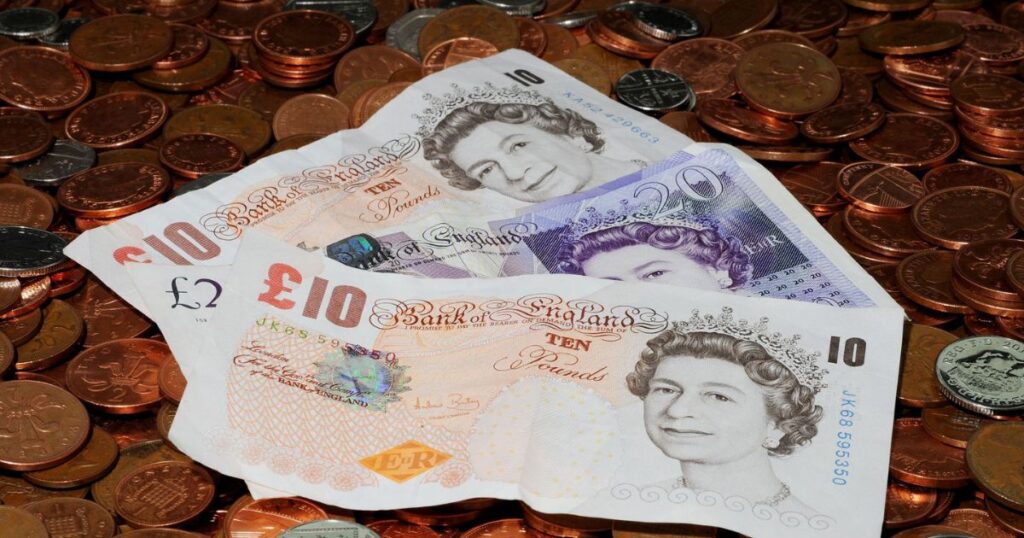Are you earning £500 a week and wondering how much of that hard-earned cash you’ll actually get to keep? You’re not alone. Understanding your tax obligations can be tricky, but it’s crucial for effective budgeting and financial planning.
In this in-depth guide, we’ll break down exactly how much tax you’ll pay on £500 a week in the UK, and what that means for your take-home pay.
Decoding Your £500 Weekly Salary
Before we dive into the nitty-gritty of tax calculations, let’s put your £500 weekly salary into perspective.
Annual Salary Breakdown
If you’re earning £500 every week, your annual salary works out to £26,000 (£500 x 52 weeks). This figure is important because UK taxes are calculated on an annual basis, even if you’re paid weekly or monthly.
UK Tax System Basics
To understand how much tax you’ll pay, you need to grasp two key concepts:
- Personal Allowance: This is the amount you can earn tax-free each year. For the 2023/2024 tax year, it’s set at £12,570.
- Tax Bands: Once you exceed your Personal Allowance, you start paying tax at different rates depending on how much you earn.
For someone earning £500 a week (£26,000 annually), you’ll fall into the basic rate tax band, which applies to income between £12,571 and £50,270.
Crunching the Numbers: Tax on £500 a Week
Now, let’s break down exactly how much tax you’ll pay on £500 a week in the UK.
Income Tax Calculation
Here’s how your income tax is calculated:
- Annual salary: £26,000
- Minus Personal Allowance: £12,570
- Taxable income: £13,430
The basic rate of 20% applies to this £13,430, resulting in an annual income tax of £2,686.
On a weekly basis, this works out to about £51.65 in income tax.
National Insurance Contributions (NICs)
NICs are another deduction from your salary. For the 2023/2024 tax year:
- You pay 12% on earnings between £242 and £967 per week
- You pay 2% on earnings above £967 per week
For £500 a week, your NICs would be: (£500 – £242) x 12% = £30.96 per week
Student Loan Repayments
If you have a student loan, repayments might also be deducted from your salary. The thresholds for 2023/2024 are:
- Plan 1: £22,015 per year (£423 per week)
- Plan 2: £27,295 per year (£525 per week)
At £500 a week, you’d be over the Plan 1 threshold but under Plan 2. If you’re on Plan 1, you’d pay 9% of the amount over the threshold: (£500 – £423) x 9% = £6.93 per week
Your Take-Home Pay: What’s Left After Tax?

Let’s put it all together to see what your take-home pay would be on £500 a week:
| Item | Weekly Amount |
| Gross Pay | £500.00 |
| Income Tax | -£51.65 |
| NICs | -£30.96 |
| Student Loan (Plan 1) | -£6.93 |
| Net Pay | £410.46 |
So, out of your £500 weekly salary, you’d take home about £410.46 after tax and deductions.
Beyond the Basics: Tax Considerations for £500/Week Earners
Tax Code Implications
Your tax code determines how much tax-free income you get each pay period. The standard code for someone earning £500 a week would be 1257L, which gives you the full £12,570 Personal Allowance spread across the year.
Potential Deductions and Benefits
You might be able to reduce your tax bill through:
- Pension contributions: These are often taken from your pre-tax salary, reducing your taxable income.
- Tax-free allowances: Some job-related expenses can be claimed tax-free.
Related Post: GST/HST Rates in Canada and Provincial Sales Tax Rates
Maximizing Your £500 Weekly Income
Tax-Efficient Savings and Investments
Even on £500 a week, it’s worth considering tax-efficient savings options:
- ISAs: You can save up to £20,000 per year tax-free in ISAs.
- Lifetime ISAs: If you’re saving for your first home or retirement, you could get a government bonus on your savings.
Career Progression and Tax Brackets
As your earnings increase, be aware of how this affects your tax:
- The basic rate band extends up to £50,270, so you have room for pay increases before hitting the higher rate.
- Each pay rise will increase your take-home pay, but remember that you’ll pay tax on the increase.
Common Questions About Tax on £500 a Week in the UK
Q: Do I pay tax on exactly £500 a week? A: You pay tax on your earnings above the Personal Allowance. If £500 is your gross pay, you’ll pay tax on the portion above your weekly Personal Allowance.
Q: How does overtime affect my tax? A: Overtime is taxed at the same rate as your regular earnings. If it pushes you into a higher tax band, only the amount over the threshold is taxed at the higher rate.
Q: What if my weekly income varies? A: Tax is calculated on your total annual income. If your weekly pay varies, your tax deductions might also vary, but it should balance out over the year.
Staying Informed: UK Tax Updates for £500/Week Earners
Tax rules and thresholds can change each year. For the 2023/2024 tax year:
- Personal Allowance remains frozen at £12,570
- National Insurance thresholds have been adjusted
Keep an eye on the annual Budget announcements for any changes that might affect your take-home pay.
Conclusion
Understanding how much tax you’ll pay on £500 a week in the UK is crucial for managing your finances effectively. While it might seem complex, breaking it down step-by-step makes it more digestible. Remember, your take-home pay of around £410 per week accounts for income tax, National Insurance, and potentially student loan repayments.
By staying informed about tax rules and exploring tax-efficient savings options, you can make the most of your £500 weekly salary. Whether you’re budgeting, planning for the future, or considering career moves, this knowledge will serve you well.
Always consult with a financial advisor or check the latest HMRC guidelines for the most up-to-date and personalized tax information. Your financial journey is unique, and understanding your taxes is a big step towards financial empowerment.

Howdy, editor at FinanceEon.com, brings over a decade of financial journalism experience. He ensures accuracy and insightful analysis, guiding a team on market trends and investment strategies.







